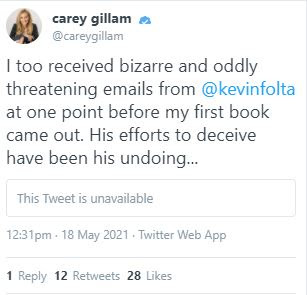Creating False Consensus with Bots

The discussion around Twitter bans is hot, mostly with regard to specific accounts that provide dangerous false information. But what about accounts that appear to be legitimate users, but somehow are coordinated accounts posting false or misleading information? One false-information source alone is not much influence, and one can be singled out, reported or appropriately banned without consequence. But does the mass posting of a common false claim from dozens of accounts provide a false sense of consensus where none really exists? It's right from the Goebbels playbook-- tell a lie often enough and it becomes the truth. It works because repetition and the perception of broad support from a number of supposedly independent accounts provides the illusion of truth. This barrage occurred following news that Oxitec mosquitoes were being released in the Florida Keys. Repetition of a common message from multiple accounts that appear to be independent provides the illusion of cons

